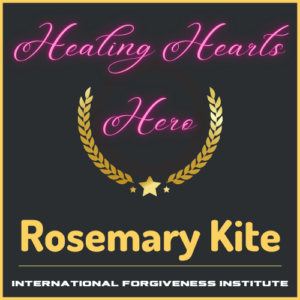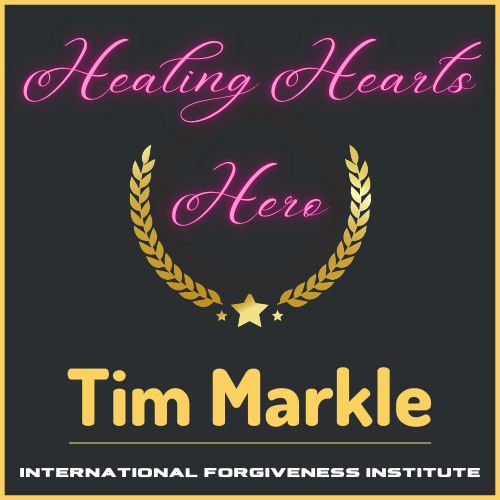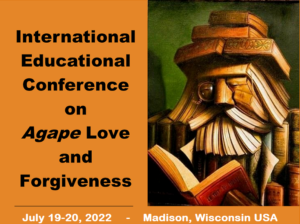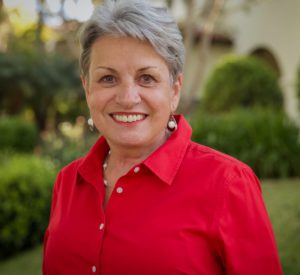Tagged: “The Forgiving Life”
Is Forgiveness a Decision?
I have heard quite often that the essence of forgiving others is a decision. As the one who was offended makes this internal commitment to be good to the one who offended, then this allegedly is forgiveness. Is this correct and if not, then what are some of the problems with this approach?
As a follower of the ancient Greek philosopher, Aristotle, I have come to realize that forgiveness is a moral virtue because it has the characteristics of all of the other moral virtues such as justice, patience, kindness, love, and all the others. One common characteristic is that all of these concern goodness, starting within the person so exercising the virtue and then flowing out to other people for their good. For example, one aspect of justice involves the goodness of an equal exchange between persons. If you contract with a carpenter to build a table for you at the cost of $300, you are being good (just) by handing over the $300 once the table is complete.
All moral virtues have a certain wholeness to them, according to Aristotle, in that the one exercising any of these moral virtues: a) knows it is good; b) is motivated to do good; c) behaves in such a way as to exercise the good (as in the payment for the table); and d) becomes more competent in the virtue with continual practice of it.
Given that forgiveness is a moral virtue, it possesses the essential characteristics of all other moral virtues. Therefore, as people forgive, they: a) think about forgiving, knowing what it is and is not; b) become motivated to forgive, which can include a decision to move forward, and an inner conviction or feeling that this should be done; c) behaviorally exercise forgiving, which can be done in a wide variety of ways such as a smile toward the one who acted unjustly, a returned phone call, or other acts of goodwill.
When we look at forgiveness as a moral virtue, we see this wholeness that goes well beyond a decision. Yes, deciding to forgive is part of what constitutes forgiveness, but to claim that such a decision is forgiveness reduces this heroic moral virtue to only one of its component parts. This is a form of splitting, so common in modern philosophy and psychology. For the sake of novelty, some scholars emphasize the importance of feelings when describing humanity; others reduce humanity to behaviors only. None of this splitting captures who we are as persons. In a similar way, reducing forgiveness to one of its component parts, whether it is a decision to forgive or a motivation to do good, is to distort the forgiveness process. If we listen too long to those who split forgiveness into its component parts and chose their favorite part, then we may be hampering people’s full embrace and expression of what forgiveness actually is. This, in turn, may block deep healing from resentment and prohibit genuine reconciliation because the “forgiver” is only partly appropriating this virtue.
Long live the wholeness of the moral virtue of forgiving.
![]()
Healing Hearts Hero Award Presented to Rosemary Kite
Rosemary Kite, founder and president of Forgive4Peace (2008-2018), has been selected to receive the International Forgiveness Institute’s (IFI’s) Healing Hearts Hero award. The award recognizes individuals who have developed collaborative partnerships with the IFI and its co-founder Dr. Robert Enright in order to promote the virtue of forgiveness on an international basis.
Formerly called Possumus International, the organization was created in 2008 with what Rosemary calls “the desire to overcome evil through a superabundance of good. And what better good could be provided to the world than instruction on how to exercise mercy towards one another, bridging the way to peace by teaching the importance and value of forgiveness at home, at school, and at work.”
Shortly after its founding, Possumus International (Latin for the words “we can”) became a 2009 Charter Member of the National September 11th Memorial and Museum. Then Rosemary and her colleagues initiated an annual “Family, Friends and Forgiveness” essay competition for girls 10-14 years old with the winners awarded camp scholarships.
In 2013, after learning about and wanting to be a part of the empowering work of the IFI, Rosemary established a “Families and Forgiveness” program that incorporated lessons from Dr. Enright’s A Family Guide to Forgiveness Education into private home settings.
Since then, Rosemary and Dr. Enright have collaborated on school Forgiveness Education projects around the world including those in: 1) Inner City Milwaukee, Wisconsin; 2) Belfast, Northern Ireland; 3) Liberia, West Africa; and, 4) the West Bank, Israel.
Forgive4Peace provided financial support for two IFI-hosted events—the Jerusalem Conference on Forgiveness (2017) and the Rome Conference on Forgiveness (2018). In July, Rosemary was an active participant at the International Educational Conference on Agape Love and Forgiveness in Madison, WI, that was hosted by the IFI and attended by 160 educators from the US, Northern Ireland, Taiwan, Israel, Spain, and the Philippines.
 “Rosemary is a fabulous ambassador for forgiveness who has continually impressed me from the first day I met her,” according to Dr. Enright. “She is constantly trying to raise awareness of the importance and value of forgiveness in one’s everyday life. She definitely knows how to heal hearts through forgiveness.”
“Rosemary is a fabulous ambassador for forgiveness who has continually impressed me from the first day I met her,” according to Dr. Enright. “She is constantly trying to raise awareness of the importance and value of forgiveness in one’s everyday life. She definitely knows how to heal hearts through forgiveness.”
In her 2019 guest blog for this website, The Art and Science of Forgiveness, Rosemary wrote:
“The art and science of forgiveness suggests that the best medicine we can possibly take to improve our physical, psychological, social, and spiritual health, is forgiveness. Forgiveness is like the pill that offers the deepest healing of the wounds that fester in the human heart.”
Elsewhere she says: “As everyone who has ever had to forgive knows, every act of forgiveness begins with an injustice. We have wounded hearts all around us, everywhere we go. Why not try to be a healing heart to those we come across in our paths daily?”
Rosemary, who has a BA from California State University in San Francisco, has devoted her professional career to educational endeavors in the non-profit sector, primarily through the education of women and girls.
Inaugural Partnership Achievement Award Presented to Tim Markle
Tim Markle, founder and director of Forgiveness Factor, has received a partnership achievement award for his years of commitment to helping others learn about the virtues of self-forgiveness and interpersonal forgiveness.
Markle was recognized with the “Healing Hearts Hero” award by the International Forgiveness Institute (IFI), a 27-year-old not-for-profit organization that has established forgiveness education programs in more than 30 countries around the world. It was presented at the International Educational Conference on Agape Love and Forgiveness in Madison, WI, that was attended by 160 educators from the US, Northern Ireland, Taiwan, Israel, Spain, and the Philippines on July 19-20.

Tim Markle, a forgiveness advocate and founder of Forgiveness Factor, is the first recipient of the IFI’s prestigious “Healing Hearts Hero” award.
For the past 13 years, Markle has been an Outreach Specialist at the University of Wisconsin-Madison Waisman Center where his numerous titles include Director of the Southern Regional Center for Children and Youth with Special Health Care Needs. In those various capacities, Markle works to improve the lives of children and adults with developmental disabilities and neurodegenerative diseases, some of life’s most challenging conditions. He also develops curriculum for a variety of audiences, provides training for both children and adults, and is a prolific speaker.
Markle uses those same management and speaking skills to pursue his secondary passion of “educating people about the benefits of forgiveness”–the passion that earned him the Healing Hearts Hero award. In addition to teaching forgiveness techniques at workshops and conferences throughout the Midwest, Markle has teamed up with Stoughton Health to create a series of popular informational podcasts on the basics of forgiveness (i.e., “Forgiving Yourself” and “The Art of Forgiveness”). He also regularly sends out short written Forgiveness Boosts to his subscribers.
 Through radio station Life 102.5FM in Madison, Markle has produced more than 50 short (2-4 minutes each) “Forgiveness Audio Boosts” that the station has been broadcasting since March 2021.
Through radio station Life 102.5FM in Madison, Markle has produced more than 50 short (2-4 minutes each) “Forgiveness Audio Boosts” that the station has been broadcasting since March 2021.
Markle even developed a six-week course that focuses on how to forgive and why forgiveness is indispensable for dealing with anger, depression, anxiety and trauma. The course is based on the ground-breaking scientific forgiveness research work of Dr. Robert Enright, co-founder of the IFI and an educational psychologist at the University of Wisconsin-Madison.
“Tim is a contributing writer for the IFI and the most prolific speaker we have for our Speaker’s Bureau service,” according to Dr. Enright “No one deserves this award more because Tim is not only one of our strongest forgiveness advocates, but he has created his own forgiveness education organization called Forgiveness Factor so he can even better broadcast his faith in forgiveness.”
The Toledo (Ohio) native has a BA degree in Psychology with a minor in Philosophy from Bowling Green State University (BGSU, Bowling Green, Ohio), a Masters in Counseling (MC) from John Carroll University (Cleveland, OH) and a Master of Arts in Christian Studies (MACS) from Trinity Evangelical Divinity School north of Chicago. He and his wife Tracy have two adult children and live in Stoughton, 20 miles east of Madison, WI.
Learn More:
- Visit the Forgiveness Factor
- Watch Markle’s podcasts at Health Talk Podcasts
- Listen to Forgiveness Audio Boosts
- Subscribe to receive Forgiveness Boost emails
- Read Tim Markle’s Bio
Speed and Forgiveness
I will try to be brief.
Speed. You can see it in the driving as the very rare few people actually adhere to the posted speed limit these days.
Speed. You can see it as you watch people walking on the street, phone in hand, scrolling, scrolling, scrolling. I wonder how long the average person stays on one topic within that phone.
Speed. Have you noticed the new trend on Facebook?: reels. These are, what?, maybe 10 seconds each? 10 seconds to view a video…….
Speed. Have you seen those commercials on the Internet, promising you weight loss at night as you sleep if you take a certain kind of pill? At night? With no exercise? And immediate results?
Speed. I have seen such statements as, “Forgive in 6 easy steps.”
Speed. It is in contradiction to what it means to grow as a person. To grow as a person is to slowly improve in the virtues, first identified by Plato as justice, or giving your best with your gifted qualities so that the community is better off and in harmony with others. This takes time to develop your gifted qualities. Forgiveness, as a moral virtue, is crafted with three things: practice, practice, practice. It takes effort and time and struggle to be good to those who are not good to you. It even takes time to deeply understand what forgiveness is and what it is not so that you do not confuse it with excusing wrongdoing or automatically reconciling or throwing justice under the bus. There is no such thing as the forgiveness pill that will reduce resentment as you sleep.
Speed and forgiveness. I have come to realize that they are not compatible and so I am concerned about the new norms of speed, shifting focus quickly, and a lack of required attention. The new norms may be getting in the way of our forgiving well and therefore of living well with others.
I say in my classes at the university: Whenever you try to improve something, you always create a new problem. Do not see only the improvement but also scrutinize the new problem to see if the new improvement is worth embracing. We have quickened our world as we get to destinations faster by car, as we see what presents our friend in a distant land got in the birthday party today, as we are entertained with a 10-second video……..but what is the problem created? We are in danger of becoming way too superficial, way too unfocused, way too unchallenged, and miss perseverance, miss growing in the moral virtue of forgiveness, and miss the golden opportunity of growing in our humanity and in assisting others in such growth.
Speed has its place. It just should not have primacy of place.
![]()
A Reflection on the International Educational Conference on Agape Love and Forgiveness, Madison, Wisconsin, July 19-20, 2022
Main Point 1: Despite cross-cultural differences, forgiveness has a common meaning across historical time and across cultures.
Main Point 2: To my knowledge, there never has been a conference on agape and forgiveness before this one.
Main Point 3: It is time for modern culture to reawaken the ancient moral virtues of agape and forgiveness for the good of individuals, families, and communities.
After over a year of detailed preparation by Jacqueline Song and the dedicated team, the agape love and forgiveness conference is now history. That history is preserved in the videos which have captured each talk presented at the conference (the videos are available here: Agape Love and Forgiveness Conference Videos).
I have at least three take-away points as I reflect on this conference:
- The cultural diversity was strong, with presentations by people from Israel, Northern Ireland, the Philippines, Taiwan, and the United States. Despite the wide cultural differences, one thing
 was clear: The meaning of both agape and forgiveness do not change as we get on an airplane and visit cultures that are far away from one another. Instead, the core meaning of agape remains in that as a person loves in this way, it is for the other person(s) and the expression of this love can be challenging for the one who willingly offers it. The core meaning of forgiveness remains as a person, unjustly treated by others, a) makes the free will decision to be good to those who acted unfairly, b) sees the inherent worth in those others, c) feels some compassion for them, d) willingly bears the pain on those others’ behalf, and e) offers goodness of some kind toward them. Yes, those who forgive may not reach all five of these characteristics, but they remain the goal, that to which we want to strive if excellence in forgiveness is our end point. Yes, there are important cultural nuances as one Islamic educator introduced forgiveness to the students with quotations from the Qu’ran and as an educator from a Christian school opened the New Testament to the students. The rich diversity had a glue that bound all together—-the objective reality of what these two moral virtues mean across historical time and across cultures. Objective meaning met cultural nuance at the conference.
was clear: The meaning of both agape and forgiveness do not change as we get on an airplane and visit cultures that are far away from one another. Instead, the core meaning of agape remains in that as a person loves in this way, it is for the other person(s) and the expression of this love can be challenging for the one who willingly offers it. The core meaning of forgiveness remains as a person, unjustly treated by others, a) makes the free will decision to be good to those who acted unfairly, b) sees the inherent worth in those others, c) feels some compassion for them, d) willingly bears the pain on those others’ behalf, and e) offers goodness of some kind toward them. Yes, those who forgive may not reach all five of these characteristics, but they remain the goal, that to which we want to strive if excellence in forgiveness is our end point. Yes, there are important cultural nuances as one Islamic educator introduced forgiveness to the students with quotations from the Qu’ran and as an educator from a Christian school opened the New Testament to the students. The rich diversity had a glue that bound all together—-the objective reality of what these two moral virtues mean across historical time and across cultures. Objective meaning met cultural nuance at the conference.
- Unless I missed something in my travels with forgiveness over the past 37 years, I do not think there ever was an international conference that focused specifically on the moral virtues of agape and forgiveness. If this is true, why is it the case? What has happened within humanity so that these two key moral virtues, so prominent for example in Medieval times, would be characteristically ignored in educational contexts with children and academic contexts in university settings? I think the transition from accepting objective truth about moral virtues (for example, justice is what it is no matter where we are in the world even when there are cultural nuances) has given way to an assumption that relativism is the new truth and so we all can choose the virtues we like and define them as we wish. Do you see the contradiction in such a statement? In the abandonment of objective reality that there is a truth, the new thinking is that relativism (in which there is no truth) is the new objective truth. It is time to reintroduce communities to the moral virtues, which we all share as part of our humanity. We need to know what these virtues are by definition and how we can give them away to others for their good, for our good, and for the good of communities.
- When I look across the globe at communities that have experienced conflict, that now carry the weight of the effects of decades and even centuries of conflict, I have come to the conclusion that a reawakening of the moral virtues of agape and forgiveness is vital if we are to heal from the effects of war and continued conflict with all of its mistrust and stereotyping of the human condition. Agape and forgiveness challenge us to see the personhood in everyone with whom we interact, even those who are cruel to us. This does not mean that we cave in to injustices because the moral virtue of justice requires fairness from all. The healing of hearts, families, communities, and nations will be better accomplished if people now can shake off the dust from agape and forgiveness, that have been so ignored in modernism, and find a new way with the old virtues. It seems to me that agape and forgiveness, as a team, is a powerful combination for the healing of trauma for individuals and relationships. I fear a continuation of the same old conflicts in hearts and in interactions if we do not go back and rediscover the life-giving virtues of agape love and forgiveness and bring them forward now in schools, families, houses of worship, and workplaces.
Robert




